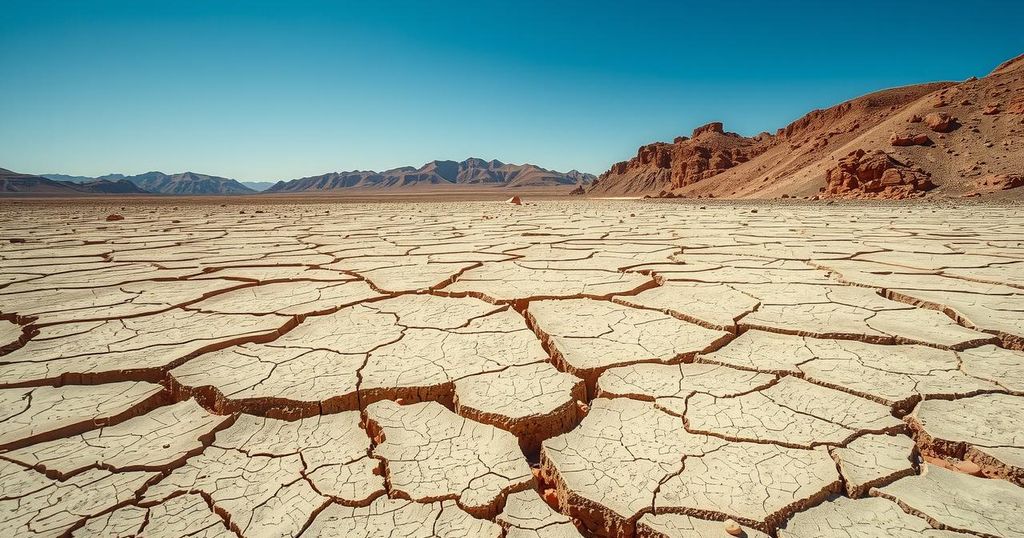Understanding the Extreme Heatwaves in India, Pakistan, and Afghanistan

India, Pakistan, and Afghanistan are experiencing frequent heatwaves linked to atmospheric Rossby waves and soil moisture conditions, as researched by IIT Bombay and Johannes Gutenberg-University Mainz. Enhanced understanding of these interactions can improve weather forecasting and climate resilience efforts.
India, Pakistan, and Afghanistan are currently enduring a series of heatwaves. Research conducted by the Indian Institute of Technology Bombay, in collaboration with Germany’s Johannes Gutenberg-University Mainz, has focused on climatic factors influencing these events, particularly the intense heat episodes from March to April 2022. Their findings were published in the Journal of Geophysical Research: Atmospheres.
Roshan Jha, the lead author of the study and a doctoral student at IIT Bombay, explained, “Our analysis shows that the March heatwave was primarily linked to a sudden increase in the amplitude of short-lived atmospheric Rossby waves, which are large-scale meanders in high-altitude winds.” Rossby waves significantly affect weather patterns and can create extreme temperature conditions.
Jha further noted, “The waves grew stronger as high-altitude westerly winds near the poles transferred energy to westerly winds closer to the equator during the heatwave.” This interaction between the atmospheres at different latitudes contributes to the intensity of heatwaves experienced in these regions.
Prof. Arpita Mondal, Associate Professor at IIT Bombay, emphasized the role of soil moisture in temperature regulation, stating, “Think of it like this – when the soil has moisture, some of the sun’s energy goes into evaporating that moisture rather than heating the air. But when the soil is already dry, all that energy goes straight into making the air hotter.” This highlights the critical influence of local conditions on heatwave severity.
The researchers advocate for a better understanding of these climatic patterns to improve weather forecasting and climate change predictions. Enhanced knowledge in this area is essential for developing effective measures to mitigate the impacts of rising temperatures and heatwaves. While the increase in heatwaves is concerning, a deeper comprehension will aid in more reliable predictions and strategic interventions to protect communities.
India, Pakistan, and Afghanistan are facing extreme heat due to climatic interactions involving Rossby waves and local soil conditions. The findings emphasize the need for improved understanding and forecasting to mitigate the impacts of these heatwaves. As temperatures rise, strategies for effective preparedness and response become increasingly vital.
Original Source: www.wionews.com







